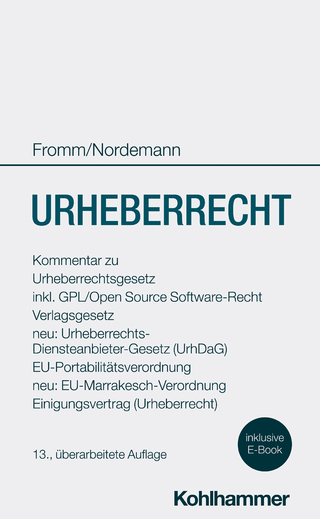
Intellectual Property Rights in China
Politics of Piracy, Trade and Protection
Seiten
2009
Routledge (Verlag)
978-0-415-36496-6 (ISBN)
Routledge (Verlag)
978-0-415-36496-6 (ISBN)
This book uses the case of intellectual property rights in China to examine how and to what extent market forces and knowledge development affect the relationship between China and the rest of the world.
Intellectual Property Rights (IPR) infringement is so rampant in China that counterfeit goods - from general household merchandise, garments and media consumables to specialist products including pharmaceutical products and super computer chips - can be found in roadside stalls, markets, shops, department stores and even laboratory of leading universities. If allowed to continue these infringements may further engender a socially accepted culture of ‘fakeness’ that may seriously hamper innovation and economic progress.
Gordon C. K. Cheung uses the case of intellectual property rights (IPR) to examine how and to what extent market forces and knowledge development affect the relationships of China and the world, especially the United States. Including detailed original statistics and data collected from Chinese provinces and cities and in-depth interviews with legal experts and policy makers, this book gives a unique insight into the opportunities and challenges that China faces as it increasingly becomes part of the global society.
Intellectual Property Rights in China is a stimulating read for anyone studying Chinese Business and International Political Economy.
Intellectual Property Rights (IPR) infringement is so rampant in China that counterfeit goods - from general household merchandise, garments and media consumables to specialist products including pharmaceutical products and super computer chips - can be found in roadside stalls, markets, shops, department stores and even laboratory of leading universities. If allowed to continue these infringements may further engender a socially accepted culture of ‘fakeness’ that may seriously hamper innovation and economic progress.
Gordon C. K. Cheung uses the case of intellectual property rights (IPR) to examine how and to what extent market forces and knowledge development affect the relationships of China and the world, especially the United States. Including detailed original statistics and data collected from Chinese provinces and cities and in-depth interviews with legal experts and policy makers, this book gives a unique insight into the opportunities and challenges that China faces as it increasingly becomes part of the global society.
Intellectual Property Rights in China is a stimulating read for anyone studying Chinese Business and International Political Economy.
Gordon Cheung is Lecturer in the School of Government and International Affairs, Durham University, UK.
1. Introduction 2. Approaches and Perspectives 3. US-Sino IPR Disputes 4. New ‘Hot Spots’ of Counterfeiting and Chinese Consumer Culture 5. Protecting IPR: The Chinese Way 6. Dynamics and Changes of Trademarks Development in China 7. Conclusion. Appendices
| Erscheint lt. Verlag | 5.3.2009 |
|---|---|
| Reihe/Serie | Routledge Contemporary China Series |
| Zusatzinfo | 28 Tables, black and white; 4 Line drawings, black and white; 4 Illustrations, black and white |
| Verlagsort | London |
| Sprache | englisch |
| Maße | 138 x 216 mm |
| Gewicht | 290 g |
| Themenwelt | Recht / Steuern ► Allgemeines / Lexika |
| Recht / Steuern ► EU / Internationales Recht | |
| Recht / Steuern ► Wirtschaftsrecht ► Urheberrecht | |
| Sozialwissenschaften ► Politik / Verwaltung | |
| Sozialwissenschaften ► Soziologie ► Spezielle Soziologien | |
| Wirtschaft ► Volkswirtschaftslehre ► Wirtschaftspolitik | |
| ISBN-10 | 0-415-36496-5 / 0415364965 |
| ISBN-13 | 978-0-415-36496-6 / 9780415364966 |
| Zustand | Neuware |
| Haben Sie eine Frage zum Produkt? |
Mehr entdecken
aus dem Bereich
aus dem Bereich
Textausgabe zum deutschen, europäischen und internationalen Patent-, …
Buch | Softcover (2023)
dtv Verlagsgesellschaft
17,90 €
Kommentar zu Urheberrechtsgesetz, Verlagsgesetz, Neu: …
Buch | Hardcover (2024)
Kohlhammer (Verlag)
349,00 €


